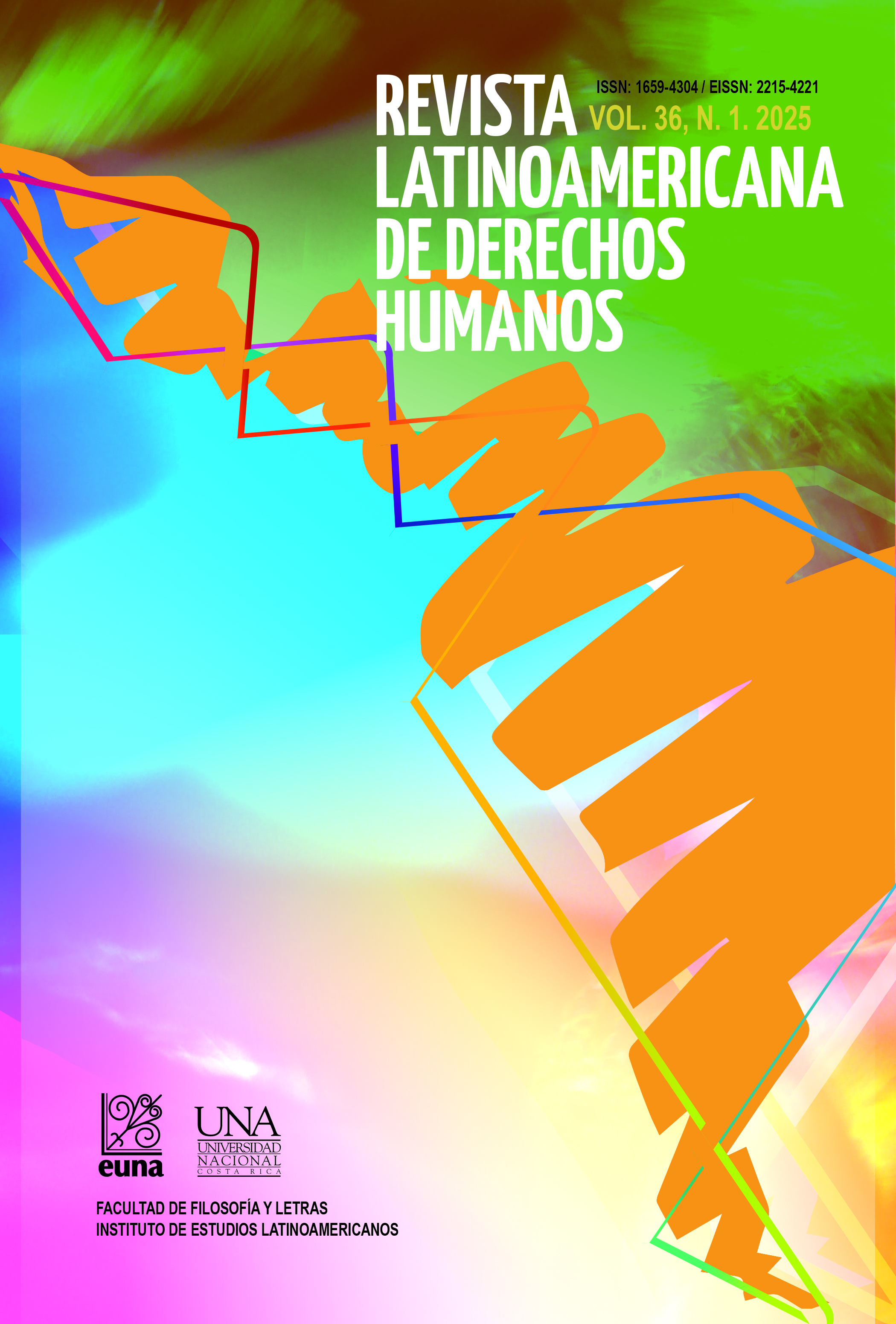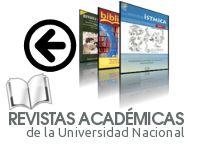Gender Perspective at the National Polytechnic Institute (IPN), Mexico: Building a Culture of Peace
DOI:
https://doi.org/10.15359/rldh.36-1.10Keywords:
gender perspective, violenceAbstract
The National Polytechnic Institute (IPN) is a Mexican public institution of higher education, currently comprising 102 academic units, founded in 1936 by Lázaro Cárdenas. The teaching staff, predominantly composed of military personnel, established a rigid, authoritarian, and patriarchal culture with gender-based violence. In 2001, the Institutional Educational Model introduced a holistic approach, facilitating the inclusion of a human rights course in the engineering curriculum. Despite the implementation of the current Model 4.0, the institutional culture has largely remained unchanged. In response, a gender perspective was introduced in 2009, followed by the establishment of the Polytechnic Unit for Gender Management in 2012. This unit created the Gender Network to extend its reach across the entire Institute, with the goal of eradicating the prevailing machismo. Today, the IPN is committed to adhering to both national and international regulations, such as the International Bill of Human Rights, the 2030 Agenda, and the CEDAW. In 2019, the IPN became the first national institution to implement a protocol for the “Prevention, Detection, Response, and Sanction of Gender Violence.” The Gender Network at ESIME Culhuacán unit identifies stereotypes that undermine human dignity; to contribute to their eradication, the unit implements denunciation campaigns against violence, harassment, and bullying, while it provides training on Human Rights, Feminism, Masculinities, Gender, and Education for Peace. Research is also conducted, such as the study on Gender Culture in the degree programs at ESIME Culhuacán, IPN (project number 20231736), which employs a postmodern feminist, constructivist approach.
References
Asamblea General de Naciones Unidas. (1999). Declaración y programa de acción sobre una cultura de paz, A/RES/53/243.
Blázquez N., Flores F., Ríos, M. (Coords.). (2012). Investigación Feminista: Epistemología, Metodología y Representaciones Sociales. México. Centro de Investigaciones Interdisciplinarias en Ciencias y Humanidades: Centro Regional de Investigaciones Multidisciplinarias: Facultad de Psicología UNAM.
Cabrera E. (sábado 10 de junio de 2023). Violencia en el IPN. El Sol de México, p. 3.https://es.kiosko.net/mx/2023-06-10/np/mx_sol_mexico.htm
Camps, V. (1993). Virtudes Públicas. Espasa Calpe. (3ª ED.).
Diario Oficial de la Federación. (2021). Ley General de Educación Superior. Cámara de
Diputados, México. https://www.diputados.gob.mx/LeyesBiblio/ref/lges.htm
Dirección General IPN. (Gaceta Quincenal núm. 1482 24 de junio de 2019). Misión Institucional. Gaceta Oficial del IPN. https://issuu.com/ipn85
Fernández Batanero, J. M. (2004). La transversalidad curricular en el contexto universitario:
un puente entre el aprendizaje académico y el natural. Revista Fuentes (5). https://revistascientificas.us.es/index.php/fuentes/article/view/2403.
Fundación Cultura de Paz. (1999). Declaración y Programa de Acción sobre una Cultura de Paz. Fundación Cultura de Paz. http://fund-culturadepaz.org.2021/02
Guterres, A. (2020). Las Mujeres y el Poder. The New School. https://www.un.org/sg/en/content/sg/speeches/2020-02-27/remarks-new-school-women-and-power.
Instituto Politécnico Nacional (IPN). (2024). Historia, Misión, Visión y Valores del IPN. Institución Educativa IPN. www.ipn.mx.
IPN. (2020). EDUCACIÓN 4.0 EN EL IPN. educacion.4.0-e.4. https://e4-0.ipn.mx/e4-0-ipn/.
IPN. (2001). Materiales para la Reforma, tomo I. Un nuevo modelo educativo para el IPN.
México. IPN
IPN. (2003). Materiales para la Reforma, tomo 15, De la sociedad de la información a la sociedad del conocimiento: más que un glosario. México. IPN.
IPN. (2021). Programa Institucional a Mediano Plazo 2021-2023. México. IPN.
Lamas, M. (1996). La Tarea. Revista de Educación y Cultura de la Sección 47 del SNTE. 8, p. 1.
Reyábal, M. y Sanz, A. (1995). La transversalidad y la educación integral, en Los ejes transversales, aprendizaje para la vida. Escuela Española.
Secretaría Anticorrupción de Chihuahua. (2021). Manual de Actuación para la Prevención y Atención en Situaciones de Violencia de Género, Acoso y Hostigamiento Sexual. Gobierno de Chihuahua, México.
Secretaría de Educación Pública. (20 de abril de 2021). Ley General de Educación Superior. Diario Oficial de la Federación. https://www.dof.gob.mx/nota_detalle.php?codigo=5616253&fecha=20/04/2021#gsc.tab=0
Senge, P. (2010). La quinta disciplina: el arte y la práctica de la organización abierta al aprendizaje. Granica. (2ª. Ed.).
UNESCO. (2000). Declaración Mundial sobre la Educación Superior en el Siglo XXI: Visión
y Acción. Educación Superior y Sociedad, 9 (2), pp. 97-113.
Unidad Politécnica de Gestión con Perspectiva de Género. (Número 1726, 31 de mayo de 2023, Año LIX). Protocolo para la prevención, detección, atención y sanción de la violencia de género en el instituto politécnico nacional. Gaceta Oficial del IPN, vol. 19, https://www.ipn.mx/genero/materiales/protocolo.pdf.
Published
How to Cite
Issue
Section
License
El material que se publica en esta Revista está bajo una licencia “Creative Commons” 3.0 Costa Rica (CC, Reconocimiento-NoComercial-SinObraDerivada 3.0 Costa Rica (CC BY-NC-ND 3.0 CR) . Esto significa que el material publicado en la revista se puede compartir (copiar y distribuir) en cualquier medio o formato considerando que se debe reconocer de forma adecuada la autoría del material y la fuente, no puede utilizarse con fines comerciales y no se aceptan las obras derivadas (remezclar, transformar o crear a partir del material).








